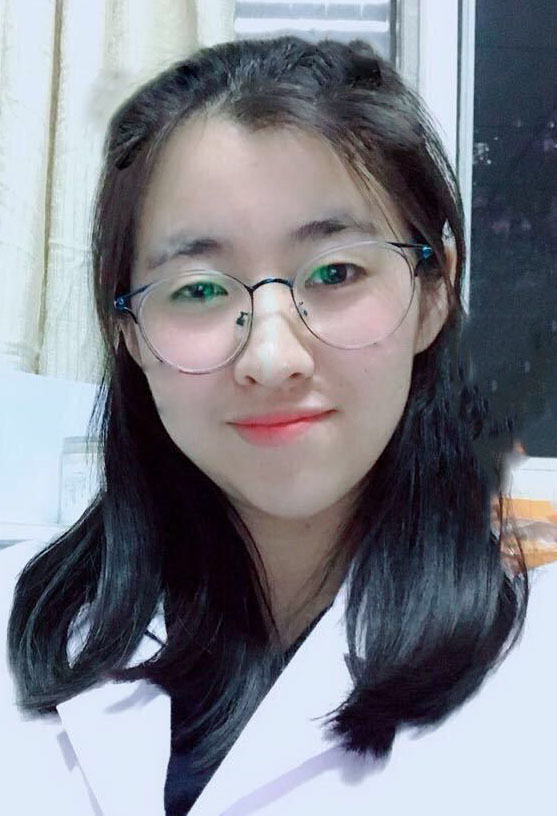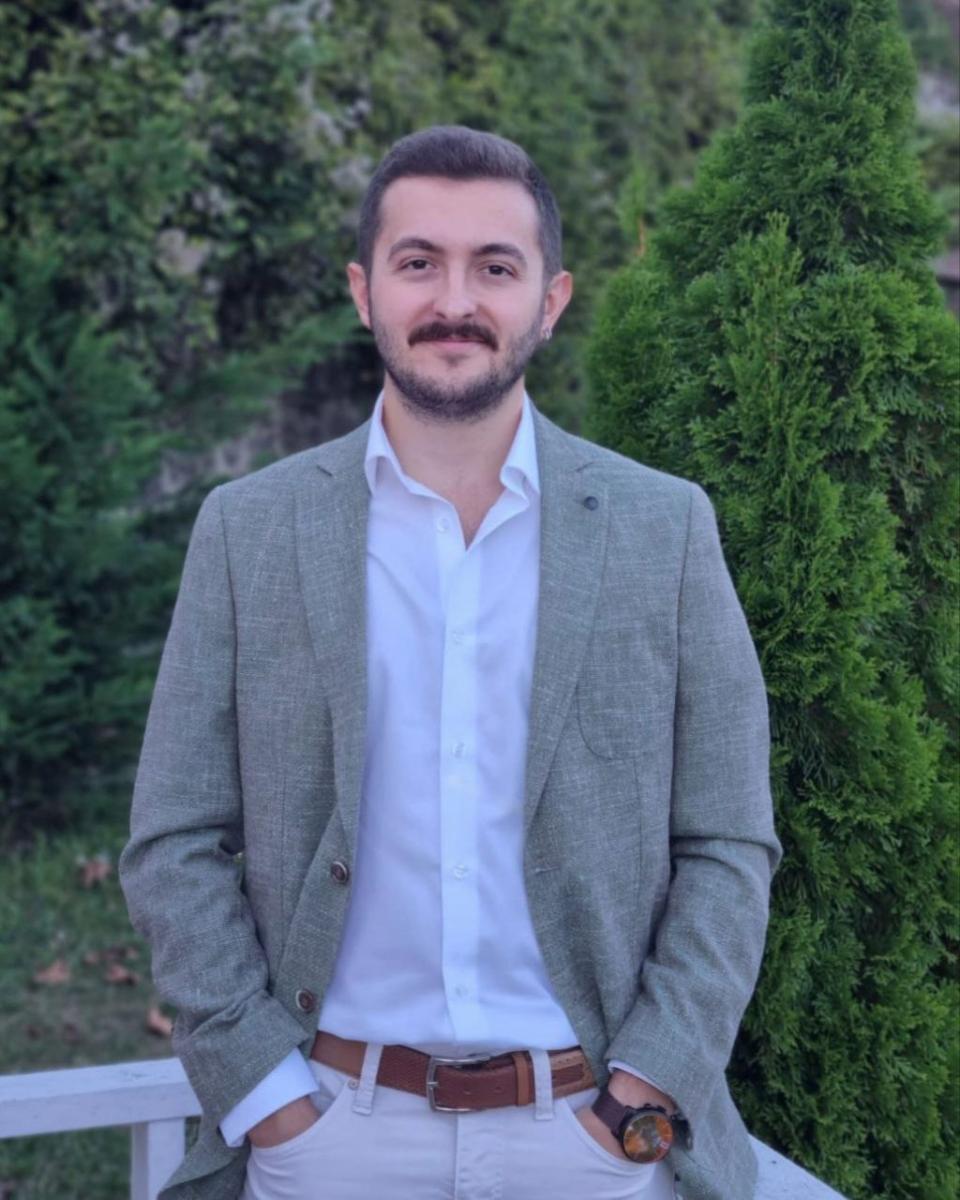2022 Dissemination Activities
2022 Dissemination Activities office_1China Dissemination Activities 2022
China Dissemination Activities 2022Wenqian Zhao, China
Could you please tell us a little about you and your background?
Hi, I am Wenqian ZHAO, Chaney, a year three PhD candidate in nursing from China. I am doing research on the utilization of contextual behavioral science in oncology care. I appreciate the ACBS committee for selecting me as a scholarship recipient so I can learn more about theories and practices and share my insights on ACT-related research.
How did you become interested in CBS?
I first learned about ACT from published papers about using ACT-based intervention to address cancer patients’ depression when doing my master's research. I learned basic knowledge about ACT in the training courses of Prof. Zhu Zhuohong, professor of the Chinese Academy of Psychological Sciences. I first learned about ACBS when I was going to start my PhD study from my co-supervisor Prof. Chong, who is also a professional member of ACBS. Prof Chong recommended I register as an ACBS student member to get more information about contextual behavioral science as I am interested in using ACT in my PhD study. Then, I attended ACT workshops organized by ACBS World Conference from 2020 to now, further learning about CBS and ACT to support my PhD research.
Could you tell us about your research and application interests?
I am interested in using ACT to promote the rehabilitation of breast cancer patients. In my previous studies, I focused on the sleep disturbance of those patients, and now on their body image disturbance. But there is a big challenge for me to deliver ACT as I do not have so much experience in using ACT in clinical sites. I always lack confidence in my ACT competency, getting trapped into anxieties about the research results, instead of focusing on the study process. ACBS conference provides me the best opportunity to learn more about experiences of using ACT in research and clinical treatment, which help me a lot in design and problem solving during my research.
Could you tell us about your experience at the World Conference this year?
This year, I attended the pre-conference workshop on “Enhancing the effectiveness of Applied Behavior Analysis through Acceptance and Commitment Training (ACT)” presented by Dr. Luisa Cañon. In this workshop, Dr. Cañon introduced a behavior analytic framework for doing ACT. The basic philosophical assumptions and principles of behavior analysis underlying ACT could provide ongoing assessment and intervention of verbal behavior within the scope of practice of behavior analysts. The roleplay and experiential exercises throughout the workshop gave me an entire repertoire to use ACT, so I was better equipped to deal with the challenges in my research sessions. During this conference, I also submitted a poster presentation on “Effectiveness of cognitive-based interventions for improving body image and psychological distress of breast cancer patients: A systematic review and meta-analysis”, and I was honored to share my research findings on the ACT with scholars from all over the world.
The workshop I participated in this year gave me a lot of inspiration, including how to understand some repressed and neglected inner activities when patients describe and narrate their personal experiences. At the same time, my supervisor, Professor Chong, also commented on my ability to guide patients to practice and put forward suggestions for improvement.
What did you take back from your experience that has been helpful to you?
Inspired by the Conference, I actively participated in more clinical ACT practice activities, such as SIG of Body Image organized by friends I met in ACBS, and clinical supervision training organized by the ACBS China Chapter. I also conducted my PhD study, an ACT-based intervention program among breast cancer patients in China. During my research, I shared my experience with the patients, their families, doctors and nurses who worked in the surgery department at the research sites. The patients and their families showed a great interest in ACT and its unique attitudes toward the negative experience. The doctors and nurses in the department also showed interest in related research topics, such as ACT, CBT, and Mindfulness. I will continue to expand my research areas and make my efforts to promote the utilization of ACT in clinical nursing care.
Do you have anything else that you would like to share with the community?
Thanks again for this opportunity to attend this great conference. Looking forward to seeing you next year!
Türkiye Dissemination Activities 2022
Türkiye Dissemination Activities 2022Enver Denizhan Ramakan, Türkiye
Could you please tell us a little about you and your background?
Hi, I’m Denizhan Ramakan from Türkiye. I’m working as a resident in psychiatry department of a rooted mental health hospital and I am a member of ACBS Türkiye.
How did you become interested in CBS?
I first met with CBS when I started my residency education, thanks to Fatih YAVUZ and after him Sevinç ULUSOY who are two of the founders of ACBS Türkiye. After that I’ve got into CBS work day by day. I took ACT course from ACBS Türkiye. I’ve been a member of the chapter and got part in the CBS family. I’ve been welcomed with warmth and inclusiveness and I saw the same warmth and inclusiveness from the CBS society around the world. I’d been choosen for the secretaria duty of ACBS Türkiye. I took part in congress arrangement within ACBS Türkiye. As ACBS Türkiye we made three congresses.
Could you tell us about your research and application interests?
I usually use ACT in my practice with or without pharmacotherapy. I find lots of chance to practice with both inpatients and outpatients with varieties of troubles in their lives. I have chance to see and manage patients with severe mental disorders like schizophrenia and I experience that ACT interventions really help people with psychotic symptoms. Our hospital also has an alcohol and substance dependence center and we’re currently doing a research with people who suffers from alcohol and substance use disorders. We're planning to arrange intervention for these patients. We have an affective disorders center. We've initiated a study which is an ACT group therapy for people with bipolar disorder. We’ve experienced two groups so far and we’re going to experience more in the coming days. World Con helped me develop my therapeutic skills and so contributed this process. This development is not just by new therapeutic interventions that I learned, also by enhancing my therapeutic relationship and understanding clients.
What did you take back from your experience that has been helpful to you?
I am in contact with psychiatry specialists, residents, clinical psychologists, social workers and psychiatry nurses. When I met them, I see that they didn’t know what CBS, RFT and ACT are or they knew very few of ACT. Introducing them CBS and seeing them thinking about it is priceless. After World Con, I had found chance to transfer my take outs to them and introduce them our world wide community. I take part of the education of other residents and medical students. We're doing research in the context of CBS with some of them. We're doing reading groups about CBS papers. I’m more into RFT. We’ve initiated a working group named Language and Behaviour Research Working Group within ACBS Türkiye. In this group, we’re deepening our knowledge about RFT and planning to do some research in this field. RFT sessions in the conference updated me and encouraged to initiate researches. We have some ideas that we are preparing to bring to life.
Do you have anything else that you would like to share with the community?
ACBS made communication easier to us and helped me to see the openness to share. Thanks to our community for this opportunity that helped me to connect people who makes great valued works, to update myself and develop my therapeutic skills and my therapist stance; encouraged me to transform my effort to scientific work. I think that’s important to contribute and develop together.
Türkiye Dissemination Activities 2022
Türkiye Dissemination Activities 2022Veysel GÜLEÇ Türkiye
Could you please tell us a little about you and your background?
I am 29 years old, I am studying as a psychiatrist in a training hospital in Istanbul and I am actively examining patients. I am about to complete my 5th year in the profession. I am currently a member of the acbs turkey chapter.
How did you become interested in CBS?
In Turkey, ACT is known among psychiatrists and used clinically by some psychiatrists. In the trainings given in Turkeye, behavioral sciences are explained in areas such as functional contextualism. Since I was also interested in the theoretical side of CBS, I continued additional reading groups and trainings after I received the training. During this time, I participated in groups where books such as “the ABCs of human behavior” and “Learning RFT” were read, and I worked as a coordinator in a group. I was joined a group that started years before I trained. We've been meeting weekly for years. Even though the content changes, we do readings and practices every week under the heading of CBS. I am also an active member of the turkey chapter. I took part in the organizing team of the ACT congresses, which will be held for the 4th time next year and attended by different professional groups working in the field of mental health.
Could you tell us about your research and application interests?
Apart from psychiatric clinical diagnoses, I am interested in couple relationships, we have a working group that we conduct on the basis of contextual behavioral sciences. In this group, we are planning projects related to more application areas. I made my thesis to investigate the factors that predict dyadic adjustment in bipolar patients. I examined variables such as stigma and psychological rigidity within this framework.
Could you tell us about your experience at the World Conference this year?
The ACBS world conference I attended this year was the first for me. I think it's been effective. After a workshop I attended at the precongress, I made a presentation in my own unit at the hospital. The workshop about “single case design” was interesting for me. After the congress, I made additional readings on the subject. In addition, I had the chance to talk about the sessions and share experiences with my friends who attended the congress in my close circle. In general, I was also pleased that both the presenters and the participants were extremely helpful and friendly at the congress.
Was there anything that stood out to you about the CBS community?
Everyone I knew was diligent, helpful, and kind. I can say that I have seen again what it means to be value-oriented.
What did you take back from your experience that has been helpful to you?
If I evaluate not only this world congress but also my acquaintance with CBS, I can say the following. I have been following patients with ACT for about 4 years, I have had patients that I have followed with therapy, as well as with medication and therapy. Although we evaluate patients through a diagnosis-oriented and deterministic approach during examinations in the hospital, I use the CBS approach during patient examination, while formulating patients' complaints. I think the contribution of CBS to understanding my patients is great. In an environment where the mechanistic perspective is dominant, it is an advantage to consider clinical situations as a functional contextualist. Functional contextualist formulation is useful when diagnosing and determining treatment.